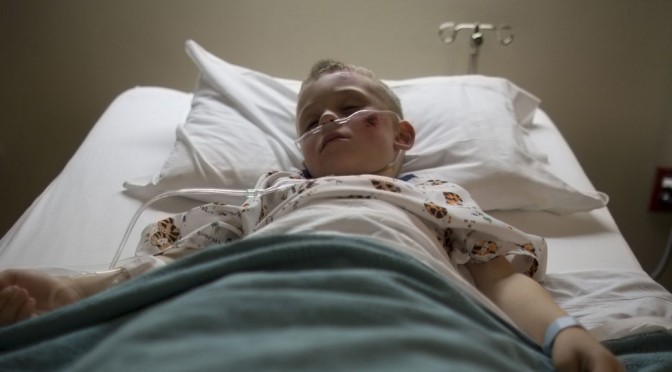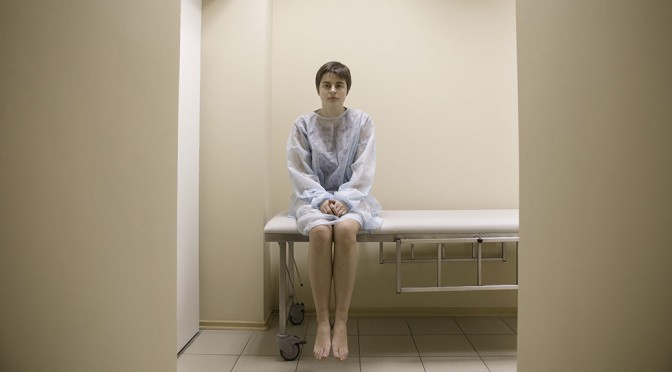The ability of Americans to access reproductive health services is under full-scale assault from groups who seek to impose their religious beliefs on others, and change the law to prevent women from making decisions about their own bodies. From laws allowing pharmacists to refuse to fill prescriptions for birth control; to outlandish restrictions that are closing abortion providers across the country; to Supreme Court cases claiming a religious right to deny one’s employees access to reproductive health care — the Religious Right is relentless in its attacks on access to contraception and abortion.
Contraception
That safe, affordable, easily available contraception has been an unprecedented boon to society is accepted by all but those with a religious axe to grind. The idea of sex without the purpose of procreation is a threatening one to some religious groups, leading to their ongoing campaign against contraception.
- The Contraceptive Mandate. The Affordable Care Act (also known as “Obamacare”) included, for the first time, an affirmative requirement that preventive health services, including all forms of prescription contraception, be provided at no additional cost to plan holders. Conservative religious groups and companies promptly sued, sued, and sued again.
-
- The Supreme Court in March heard oral arguments from Hobby Lobby and Conestoga Woods Specialties, two for-profit corporations seeking a religious exemption from the Contraceptive Mandate. They claimed not only that the owners’ religious beliefs were offended by employees having access to contraception, but that the corporations themselves had religious beliefs that warranted protection. CFI, on behalf of a group of secular organizations, filed an amicus brief, arguing that a religious exemption that places a burden on a third party violates the Establishment Clause of the First Amendment. If the Court rules in favor of corporations having religious beliefs, there will be a flood of claims for religious exemptions: from Jehovah’s Witnesses seeking to avoid insuring blood transfusions to Christian Scientists seeking to avoid providing health insurance at all. Whatever the result of this case, CFI will continue to fight for the principle that an owner’s private religious beliefs should not trump the secular rights of the employees.
- 39 non-profit organizations, such as the University of Notre Dame, have filed to be exempted from the Contraceptive Mandate. Religious non-profits were given an extremely generous opt-out clause by the Obama administration. If a religious organization did not wish to provide contraception coverage, it simply needed to sign a form saying so, and the coverage would be provided by the insurance company without cost to, or participation by, the religious non-profit. That such an accommodation was not sufficient indicates the true agenda of the religious groups – it is not to avoid involvement in the provision of contraception, but instead to limit employees’ access to contraception. Their unconstitutional aim is to force their religious beliefs onto the population at large. CFI is currently seeking to file an amicus brief in support of the government against this flagrant imposition of religious dogma onto private health care decisions.
- “Conscience Clauses”
-
- 95% of American women use contraception at some time in their lives. Over 50% of American women rely on prescription methods, such as the oral contraceptive pill, IUDs, and Plan B. In order to restrict access to these methods, religious groups have invented a fallacious religious freedom claim – that medical professionals should not be required to do their jobs (supply prescribed medication) when doing so conflicts with their religious beliefs. As a result, multiple states have passed so-called “conscience clauses” permitting pharmacists to refuse to fill valid prescriptions. 13 states currently allow health care providers to refuse to provide contraception services, including 6 that explicitly provide for pharmacists to refuse service (AZ, AR, GA, IL, MS, SD). CFI believes such laws infringe on a woman’s right to medical care, and will continue to oppose such laws when they are proposed, and work to repeal such laws that already exist.
Abortion
Since Roe v. Wade in 1973, the United States has recognized that a woman has a constitutional right to abortion services early in her pregnancy. This decision has never been accepted by the Religious Right, and they have worked ceaselessly to get the decision overturned or rendered moot.
- Head-on challenges
-
- The right to abortion has been challenged at a federal level resulting in such court cases as Planned Parenthood v. Casey in 1992 which affirmed Roe while at the same time restricting its protections. On a more local level, multiple states have sought to restrict abortion rights through legislation, such as North Dakota’s Fetal Heartbeat Law, which would ban abortions after such a heartbeat is detectable (around 6 weeks). CFI will continue to both lobby against such laws and intervene in legal cases where religious belief is being used to justify restrictions on a woman’s constitutionally protected right to choose.
- Restricting Access
-
- As states realized that a direct challenge to Roe was unlikely to succeed in making abortion illegal, multiple tactics were pushed by the Religious Right to make abortion as difficult as possible to access. These tactics are becoming more and more prevalent, and, in combination with terroristic attacks on abortion clinics and medical professionals, have left vast swathes of the country without realistic access to abortion services. CFI believes that legislation that serves only to make abortion harder to obtain is unconstitutional, and will oppose such laws. Among the methods commonly promoted by the religious right are the following:
-
- Waiting Periods
- Parental & Spousal Notification Laws
- Medically unnecessary Pre-procedure Requirements (ultrasounds)
- Incorrect and incendiary information
- Unnecessary and onerous licensing requirements for reproductive health clinics, unconnected to patient safety
- Bans on use of public funds for abortion provision; banning private insurance companies covering abortions
News
This section will be updated as news develops on this topic.
- Texas Abortion Ruling a Win for Women’s Equality and a Blow to Pseudoscience, says CFI – June 27, 2016
- Reps. Kennedy, Scott Introduce Amendment to Religious Freedom Restoration Act – May 20, 2016
- Abortion Clinic Regulations: A Debate – April 8, 2016
- What’s Really at Stake in Zubik: “They Want to Prevent Contraception” – April 1, 2016
- The Miseducation of California Nurses: Legal Loophole Enables Spread of Anti-Choice Medical Myths – February 1, 2016
- Judge: California Hospital Doesn’t Have to Do Tubal Ligation – January 18, 2016
- Prominent Scientists Urge Supreme Court: Reject Pseudoscientific Testimony for Texas Abortion Case – January 11, 2016
- Groups Challenge Walgreens’ Decision To Outsource Health Care To Catholic Hospitals – December 15, 2015
- Catholic Hospital System Says It Can Deny Women Emergency Care on Religious Grounds – December 1, 2015
- City Settles Suit With Catholic Pediatrician Over Birth Control – October 27, 2015
- Legal case tests religious hospitals’ right to deny procedures – August 24, 2015
- Reports Detail Violations of the Affordable Care Act – May 1, 2015
- Obama Administration Is Quietly Racking Up Court Victories For Birth Control, Despite Hobby Lobby – February 16, 2015
- Deniers of Science: The Anti-Vaccination and Anti-Abortion Movements – January 29, 2015
- Inside The Highly Sophisticated Group That’s Quietly Making It Much Harder To Get An Abortion – December 3, 2014
- Quoting Hobby Lobby, Federal Appeals Court Hands Down Big Victory For Birth Control – November 17, 2014
- A Mix of Wins and Losses in the 2014 Midterm Elections – November 10, 2014
- Center for Inquiry Urges Federal Government to Protect Contraceptive Mandate – November 7, 2014
- ThinkProgress: Woman Who Is Just 12 Weeks Pregnant Charged With Child Endangerment – September 10, 2014
- Religion News Service: Catholic Bishops, Becket Fund Slam Newest HHS Contraception Mandate Rules – August 26, 2014
- Kaiser Health News: Religious Employers Are Offered Fix On Birth Control Coverage – August 25, 2014
- Newsweek: Suicidal Woman Denied Abortion, Forced to Give Birth in Ireland – August 20, 2014
- Associated Press: From Peyote to Sex: Religious Liberty Fight Recast – August 13, 2014
- Tell Your U.S. Senator to Expand Access to Contraception for Military Women – August 11, 2014
- Katha Politt: Why It’s Time to Repeal the Religious Freedom Restoration Act – August 4, 2014
- Francis DeBernardo: The Catholic Case Against Religious Exemptions – July 31, 2014
- Center for Inquiry Backs Proposal Expanding Access to Contraception for Military Women – July 30, 2014
- ThinkProgress: Satanists Demand Religious Exemption From Abortion Restrictions, Cite Hobby Lobby Ruling – July 28, 2014
- ABC News: Senate GOP Blocks Bill on Contraception Coverage – July 17, 2014
- Slate: The Democrats’ Brilliant Idea for How to Stop Unnecessary Abortion Clinic Regulations – July 16, 2014
- Help Fix What Hobby Lobby Broke: Tell Your Senators to Protect Women’s Access to Birth Control – July 10, 2014
- Toronto Star: Patients’ Right to Quality Care Trumps Doctors’ Freedom of Religion – July 9, 2014
- New Scientist: Science Ignored in US Birth Control Ruling – July 1, 2014
- Supreme Court: Your Boss’s Religion Trumps Your Health – June 30, 2014
- Reason: Ohio Republicans Want to Make It Harder for Women to Get Long-Term Birth Control – June 23, 2014
- Tell Your D.C. Councilmember to Protect Employees’ Reproductive Rights – June 19, 2014
- The Telegraph: Women Told ‘Terminations Increase Chance of Child Abuse’ – June 12, 2014
- Slate: How Biology Complicates the “Personhood Movement.” – June 11, 2014
- MSNBC: Louisiana Bill Would Keep Brain-Dead Pregnant Women on Life Support – June 10, 2014
- RH Reality Check: Louisiana Lawmakers Pass Bill to Keep Pregnant Women on Mechanical Support Against Their Wishes – June 5, 2014
- xoJane: I Asked For Birth Control and Got a Form Letter Saying “No” – June 5, 2014
- MSNBC: Court Blocks Arizona Abortion Restrictions – June 4, 2014
- Talking Points Memo: Wisconsin May Be Ground Zero For The Next Major Limit On Abortion Access – June 4, 2014
- NPR: Abortion Services Return To Town Where George Tiller Was Murdered – June 3, 2014
- New York Times: Access to Abortion Falling as States Pass Restrictions – May 30, 2014
Resources
- Legal Brief (CFI) — Kathleen Sibelius v. Hobby Lobby Stores
- Guide — Contraceptive Equity Laws
- Guide — Lawsuits Challenging the Contraception Mandate
- Guide — State Restrictions on Abortion
- Guide — History of Violence Against Abortion Providers
- Guide — Counseling and Waiting Periods Laws
- Guide — Parental Notification Laws
- Guide — State Ultrasound requirements
- Report — Deception at “Crisis Pregnancy Centers”
- Guide — TRAP Laws







